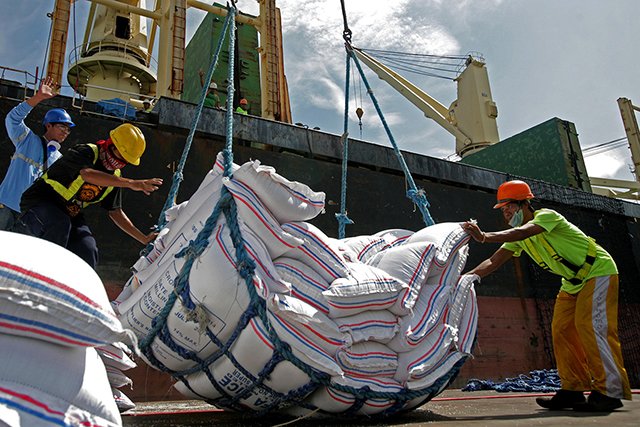The National Food Authority (NFA) should have a bigger responsibility in maintaining buffer stocks, according to the National Economic and Development Authority (NEDA), especially by allowing rice imports in times of emergency.
At yesterday’s BusinessWorld Economic Forum, NEDA Secretary Arsenio Balisacan said, “We support the strengthening of the NFA’s role in buffer stocking for emergency purposes.”
The NFA’s only responsibility under the Rice Tariffication Law (RTL) has been to provide buffer stocks during natural disasters including typhoons, droughts, and tragedies.
According to Balisacan, “the NFA should be able to secure its buffer stocks from the market, including imports,” in principle. As of right now, the RTL requires the NFA to only purchase rice from nearby farmers in order to supply buffer stockpiling.
Balisacan proposed that the NFA should not be limited to buying rice from local farmers, but should instead have the freedom to purchase rice from importers for buffer stocking. He did point out that the NFA is not required to import rice directly.
Aiming to overcome inefficiencies and the high expenses associated with price stability initiatives, the rice business underwent reforms. We have observed that price stabilization by outdated techniques is ineffective. Balisacan stressed, “We don’t want to go back to a system that hasn’t worked.
On its third and final reading, the House of Representatives passed House Bill 10381 on Tuesday. In order to stabilize the market and solve supply shortages during emergencies, the measure aims to change the RTL to reinstate the NFA’s capacity to sell rice at reduced prices. In the event that local supplies of rice are unavailable, the bill allows the NFA to import rice as a last option.
The Foundation for Economic Freedom had before claimed that the restoration of the NFA’s authority to import and sell rice to consumers would undo the progress made possible by the RTL reforms.




